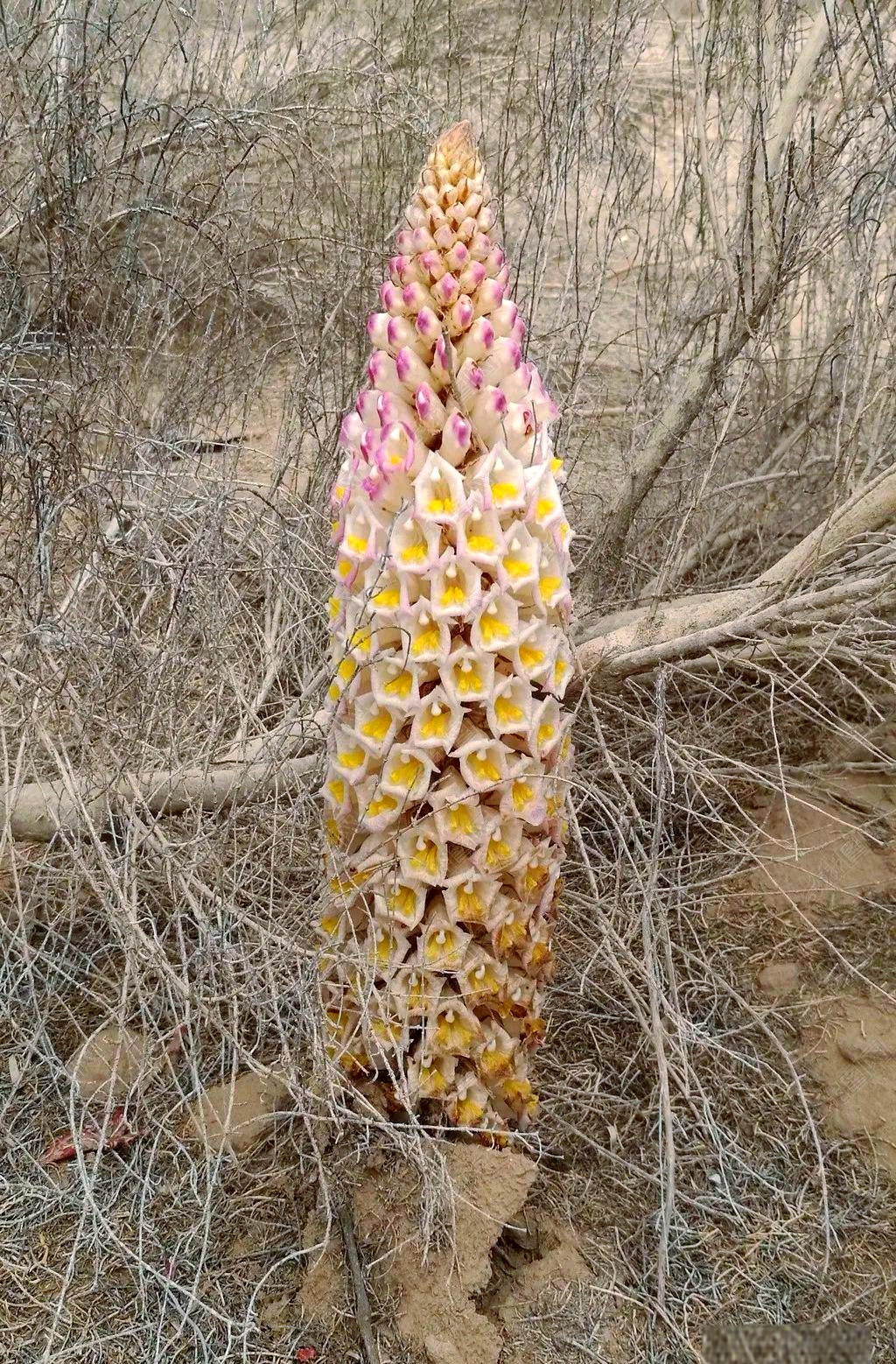Cistanche salsa seed
Cistanche salsa is a parasitic flowering plant in the Orobanchaceae family, native to the arid and semi-arid regions of Central Asia, particularly in countries like china, Kazakhstan, and Mongolia. Like other Cistanche species, it is a holoparasitic plant that lacks chlorophyll and depends entirely on the roots of host plants—often salt-tolerant desert shrubs such as Haloxylon—for nutrients and water.
Botanical Description
- Growth Habit: A perennial holoparasite that emerges above ground with a thick, fleshy Flower spike.
- Color: The flowering stalk is usually yellow to reddish-brown, with densely packed, tubular flowers.
- Roots: Lacks true roots; instead, it connects to host plant roots through specialized structures called haustoria.
- Habitat: Thrives in saline deserts, sandy soils, and dry steppe regions. It is well-adapted to harsh, nutrient-poor environments.
Traditional and Medicinal Uses
Cistanche salsa is valued in traditional chinese and Central Asian medicine for a variety of health benefits. Although it is less well-known than Cistanche deserticola or Cistanche tubulosa, it shares many similar pharmacological properties.
1. Kidney and Vitality Tonic
- Traditionally used to nourish the kidney (Shen) and strengthen yang energy.
- Commonly prescribed in Chinese herbal medicine for fatigue, impotence, lower back pain, and infertility.
2. Anti-Aging and Immunity Booster
- Believed to improve vitality, enhance memory, and combat age-related weakness.
- Used to strengthen the immune system and support recovery from chronic illness.
3. Laxative Effect
- Like other Cistanche species, Cistanche salsa may act as a mild laxative, helping relieve dry stool or constipation without causing irritation.
Phytochemical Composition
Cistanche salsa is rich in bioactive compounds, particularly:
- Phenylethanoid glycosides (e.g., echinacoside, acteoside): Known for antioxidant, anti-inflammatory, neuroprotective, and anti-fatigue effects.
- Polysaccharides: Contribute to immune modulation and gut health.
- Iridoids and lignans: Associated with liver protection and anti-aging properties.
Although more research is needed specifically on C. salsa, these compounds are well-documented in related Cistanche species and likely confer similar benefits.
Modern Applications
1. Herbal Supplements
- Extracts from Cistanche salsa are used in capsules, powders, and tonics marketed for energy, libido enhancement, and cognitive support.
- Included in some Traditional Chinese Medicine (TCM) formulas targeting male reproductive health or general yang deficiency.
2. Cosmetics and Skincare
- Antioxidant and anti-aging properties make Cistanche extracts a potential ingredient in natural skincare formulations, especially for anti-wrinkle and skin renewal products.
Ecological and Environmental Significance
- Desert Adaptation: Helps scientists understand plant survival strategies in extreme environments.
- Host Relationship: Commonly parasitizes Haloxylon ammodendron, contributing to plant biodiversity and complex desert ecosystems.
- Indicator Species: Its presence may indicate relatively undisturbed desert habitats with appropriate salt-tolerant vegetation.
Conservation Concerns
- Overharvesting for medicinal use has threatened wild populations in some areas.
- Habitat loss due to desertification, agriculture, and infrastructure development is also a concern.
- Sustainable harvesting practices and cultivation research are increasingly encouraged to preserve this valuable plant.
Conclusion
Cistanche salsa is a desert-adapted medicinal plant with significant traditional and modern value. Known for its roles in promoting vitality, kidney health, and immune function, it is a respected herb in traditional Chinese and Central Asian medicine. With its powerful bioactive compounds and ecological uniqueness, Cistanche salsa holds promise both as a therapeutic agent and as a subject of botanical interest. However, sustainable management is essential to protect this rare plant for future generations.
Cistanche salsa: Uses, Medicinal Properties, and Ecological Importance

